The eight types of insincere oaths, as set out by former Beijing official
We look at the lawmakers in the spotlight over Chen Zuoer’s eight types of so-called “insincere oath-taking”
PUBLISHED : Wednesday, 09 November, 2016
http://www.scmp.com/news/hong-kong/politics/article/2044518/eight-types-insincere-oaths-set-out-former-beijing-official
I. Adding details
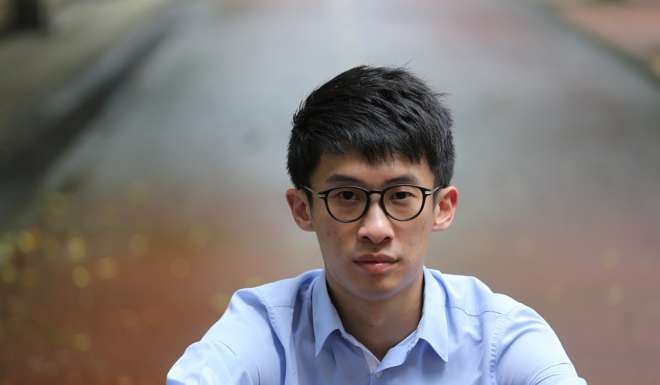
Baggio Leung Chung-hangWore a blue flag on his shoulders that read “Hong Kong is not China”. Pronounced “China” as “Chee-na”.
Response: Could not be reached for comment.
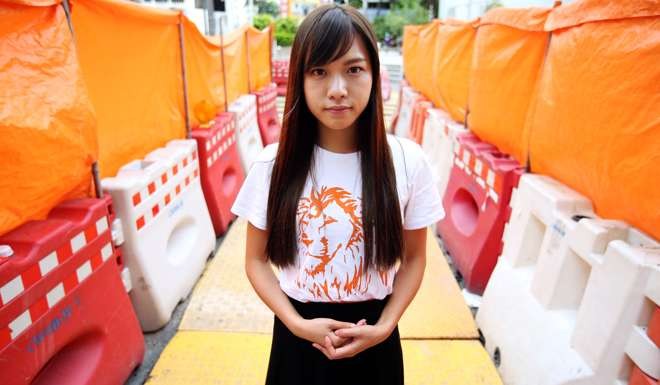
Yau Wai-ching
Displayed a blue flag that read “Hong Kong is not China”. When reading the oath, she pronounced “The People’s Republic of China” as “The People’s Re-f*****g of Chee-na”.
Response: Could not be reached for comment.
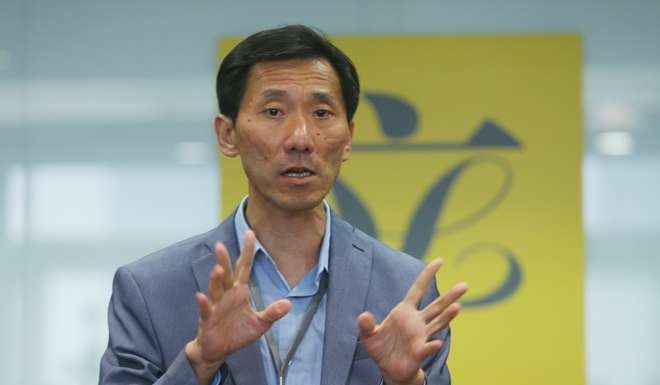
Edward Yiu Chung-yim
Added the words “defend procedural justice, fight for universal suffrage, and work for the sustainable development of Hong Kong”. Secretary General immediately allowed him to take his second oath.
Response: Chen Zuoer is no authority. He didn’t name names.
Response: Chen Zuoer is no authority. He didn’t name names.
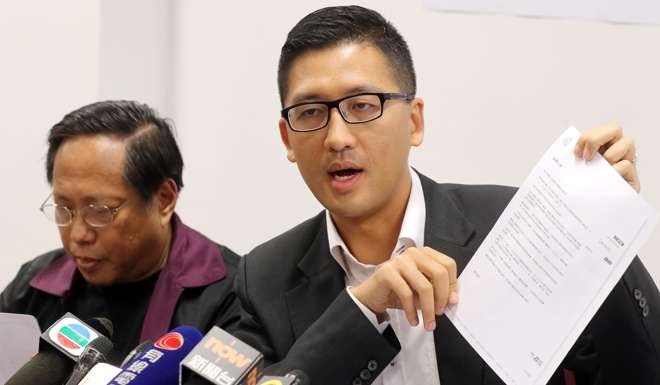
Lam Cheuk-ting
Shouted “crackdown on corruption, down with CY Leung” after taking oath.
Response: Any reasonable man will believe my oath was solemn and sincere. I only added the phrases after my oath.
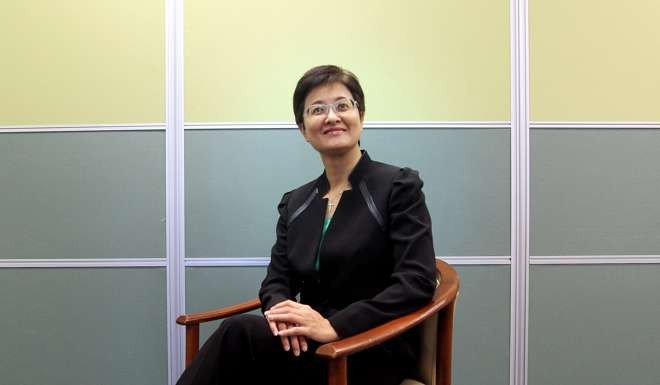
Helena Wong Pik-wan
Shouted “Repeal 831, restart political reform. Down with Leung. Water Supplies Department to test water quality immediately” after the reading and signing her oath.
Response: Is it his personal opinion or an official view? I did read the oath completely. The rest of my words were not part of the oath but statements in the chamber.
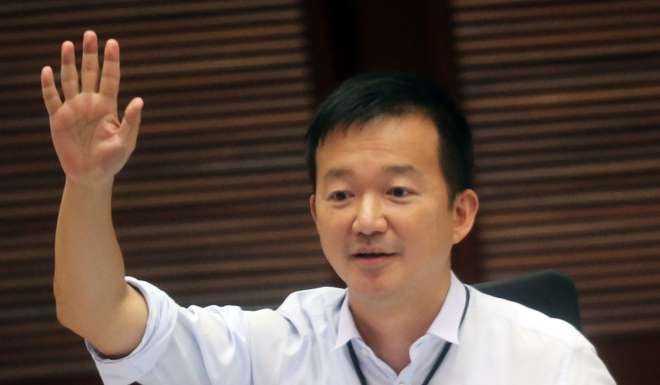
Raymond Chan Chi-chuen
Before taking his oath, he tore up a paper issued by the government on oath-taking by lawmakers. After the oath, he shouted “I want universal suffrage. Filibuster to reject unpopular policy. Down with CY Leung”.
Response: I have confidence that my pledge was solemn and sincere. I consider the gap before or after reading the oath is not part of the oath-taking process, and many lawmakers have made the gesture to express themselves previously. But I will also seek legal advise, just in case.
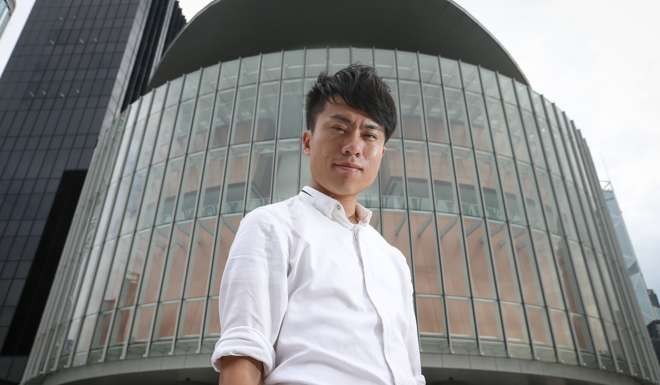
Emotionally added “Hong Kong keep it up” after the oath.
Response: Can’t I give an encouragement to Hongkongers? Can I take a breath when I take my oath then?
II. Tore up the NPCSC 831 ruling

Fernando Cheung Chiu-hung
Silently tore up a copy of the NPCSC 831 ruling after his oath.
Response: I do not know how Chen came to conclude someone was not sincere. The interpretation of Basic Law is already an outrageous move, if the government decided to disqualify so many elected lawmakers, it is truly going against the people.
III. Chanted ‘democratic self determination’

Eddie Chu Hoi-dick
Shouted slogan “Democratic self determination, down totalism. Reject Andrew Leung as president” after his oath.
Response: There is no need to discuss whether the oath is sincere as long as it was being done in accordance with the law. I am being elected by voters, and they alone can unseated me as a lawmaker.
IV. Raising an umbrella
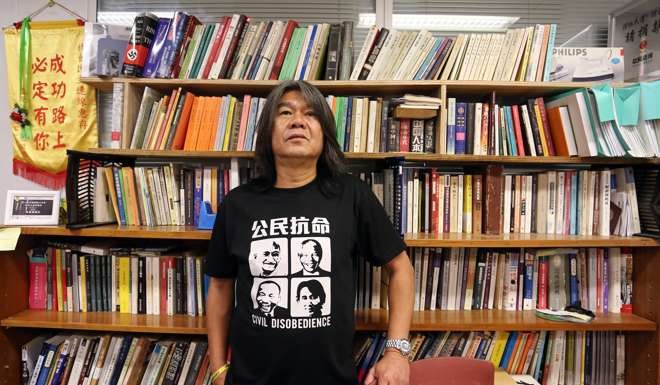
“Long Hair” Leung Kwok-hung
Raised a yellow umbrella as he shouted slogans such as “Umbrella movement will never end” and “fight for universal suffrage” before the oath. After his oath, he also said “repeal 831 decision” and tore up a copy of the NPCSC 831 ruling.
Response: Chen Zuoer is in no position to make these comments as he is just a small potato. Beijing has already delivered an interpretation on the law and there is only four point.
V. Said ‘People’s Republic of China’ in wrong tone, as if asking a question or ‘expressing an opposite meaning’
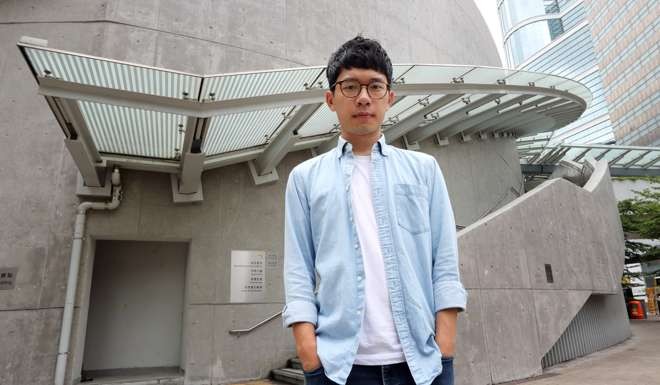
Nathan Law Kwun-chung
Before taking the oath, he said: “Today I must complete the necessary procedures, but it does not mean I am yielding to the absolute authority ... I will never be loyal to a political party that slaughters its people. I will stick to my principles and defend Hong Kong”. When he read the words “People’s Republic of China”, he raised his intonation.
Response: I have already made the pledge legally in accordance with the Oaths and Declarations Ordinance.
VI. Took 12 minutes to finish oath, and declared on Facebook they do not agree with the content
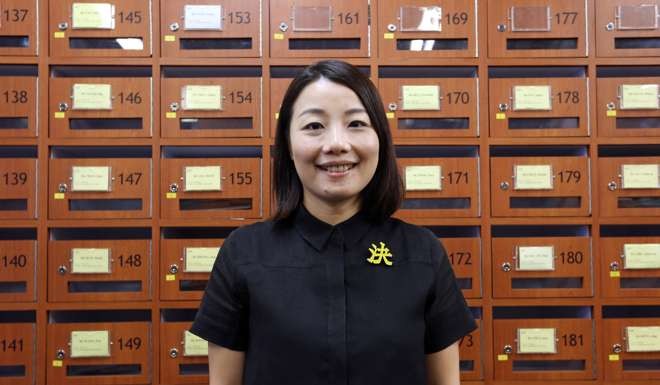
Lau Siu-lai
Took long pauses between each word and used a total of 12 minutes to finish reading her pledge, and made a declaration on her Facebook page afterwards.
Response: Chen’s remarks seem to be trying to stir up public opinion against us and intimidate us.
Response: Chen’s remarks seem to be trying to stir up public opinion against us and intimidate us.
VII. Hit a tambourine, described by Chen as a prop (or reminder) of Occupy
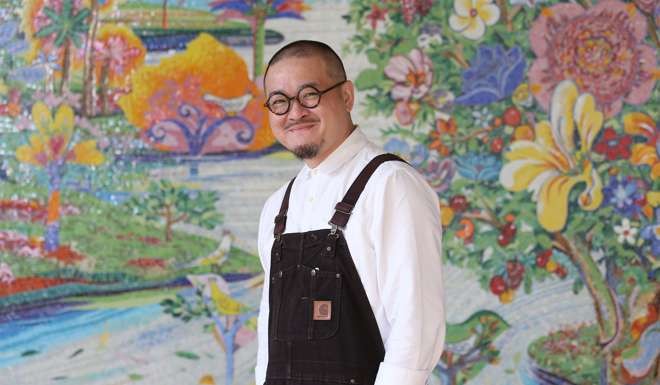
Shiu Ka-chun
After the oath, he hit a tambourine and shouted “Umbrella movement lost but not dead, we are back”.
Response: I held my tambourine during Occupy Central rallies almost every night. I read my oath very solemnly. I have no fear, but I have sought legal advice and prepared for the worst in case I am disqualified.
VIII: Turned the flag upside down
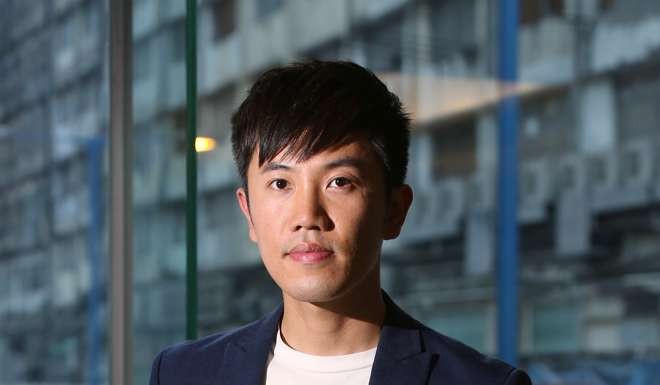
Cheng Chung-tai
Before the oath he said he did not think making a gesture during the oath-taking was a practical way to fight for democracy, and shouted “People to design the law. Renew the contract. Hongkongers are the highest.” During a break of the meeting, he turned some flags on pro-Beijing lawmakers’ seat upside down.
Response: I do not care what Chen thinks at all. He is a mainland official and I only responsible for Hong Kong’s law. He should not have anything to say under the One Country Two System principle.
First two, now 15 Hong Kong lawmakers face prospect of being expelled from Legislative Council
Wang Zhenmin comments on legislators ‘messing up’ their oaths, while former Beijing official lambasts prosecution and judiciary for failing to live up to people’s expectations
PUBLISHED : Wednesday, 09 November, 2016
http://www.scmp.com/news/hong-kong/politics/article/2044349/hong-kongs-institutions-intact-after-beijings-basic-law
From just two, now up to 15 Hong Kong lawmakers could be at risk of losing their seats after two Beijing spokesmen catalogued eight types of “insincere oath-taking” and delivered a stinging rebuke against the city’s legal officials.
The warning came two days after China’s top legislative body intervened in the city’s legislative oath row in a move hailed by pro-establishment politicians but criticised by the legal profession as a challenge to the city’s judicial independence.
At a seminar in Shenzhen, Chen Zuoer, former deputy director of Beijing’s Hong Kong and Macau Affairs Office, lambasted the city’s prosecution and judiciary, accusing them of “not living up to people’s expectations” in defending breaches of national security and making it “almost cost-free to oppose and commit crime against Beijing.”
Asked to elaborate later, he said: “There were a lot of cases in the last two or three years. From the storming of the PLA barracks, to the Occupy protests, the Mong Kok riots, there were a series of such cases.”
While the judiciary declined to comment, the Justice Department said it would “control criminal prosecutions, free from any interference” in accordance with the Basic Law.
The department had to consider all relevant laws before proceeding with prosecution. And while the end outcome might not be consistent with “so-called general public expectation” – which in itself could be diverse and “universal” – it had always handled all criminal cases in a fair, impartial and professional manner, it said.
Watch: Hong Kong protest after Beijing ruling
Chen also chided the city’s legal profession for opposing the interpretation either because it “lacked or had a different understanding or it was using the law as a tool for political struggle”.
Legal sector lawmaker Dennis Kwok said he welcomed dialogue with Chen if he did not understand the sector’s traditions.
Chief Secretary Carrie Lam Cheng Yuet-ngor declined to say if the government would mount judicial reviews against lawmakers whose oaths might not have complied with Beijing’s ruling. She would only say: “The government is studying the possible impact of the interpretation on other lawmakers.”
Last month, controversy erupted after pro-independence lawmakers Sixtus Baggio Leung Chung-hang and Yau Wai-ching swore allegiance to a “Hong Kong nation” and insulted China during their oath-taking. They were taken to court by the government in a bid to ban them from Legco. The court has yet to deliver its judgment.
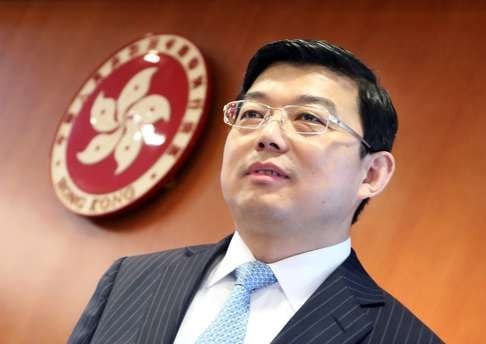
On Monday, the National People’s Congress Standing Committee issued an interpretation of Basic Law Article 104, ruling that lawmakers must be “sincere” in taking their oaths of office and those who do not comply face instant disqualification.
Speaking at the same seminar, Wang Zhenmin, legal department head of Beijing’s liaison office and a former law dean of Tsinghua University, said 15 lawmakers had “messed up” their oaths. He did not name them but the Post could identify only 14.
Among the 14 identified, all said they had taken their oaths solemnly and sincerely, and questioned Chen’s authority to cite categories of misconduct.
Chen, now president of the semi-official Chinese Association of Hong Kong and Macau Studies think tank, also said there were “a lot of people” who did not meet the legal requirements.
He listed eight types of “insincere swearing-in” last month, such as “adding things to the ceremony ... or spending 12 minutes to finish the oath” – a reference to localist Lau Siu-lai.
Watch: Hong Kong’s leader supports Basic Law ruling
Chen said: “With the central government’s interpretation, there are clear legal provisions to follow in tackling these acts that were insincere and not solemn.”
“All Chinese, all Hong Kong residents are watching, and will offer their strong support to Hong Kong’s executive, legislative and judicial branches as they exercise justice with the ‘sharp weapon’ provided by Beijing to restore Legco to normality and order,” he said.
Asked if he believed up to 15 lawmakers should be disqualified, Chen said the city’s authorities were better placed to decide. The fight against independence advocacy was “warfare that will be won”, he said.
In September, the pan-democrat and localist camps won 30 seats in Legco, while the pro-establishment camp grabbed 40.
Chinese University political scientist Ivan Choy Chi-keung warned it would be “unwise” for the authorities to expel half of the democrats.
“Mainstream public opinion has shown disfavour towards Leung and Yau already ... If Beijing is seeking to disqualify 15 lawmakers, it means they are not just fighting independence advocates, but launching a full-scale purge of dissident voices,” Choy said.
沒有留言:
張貼留言